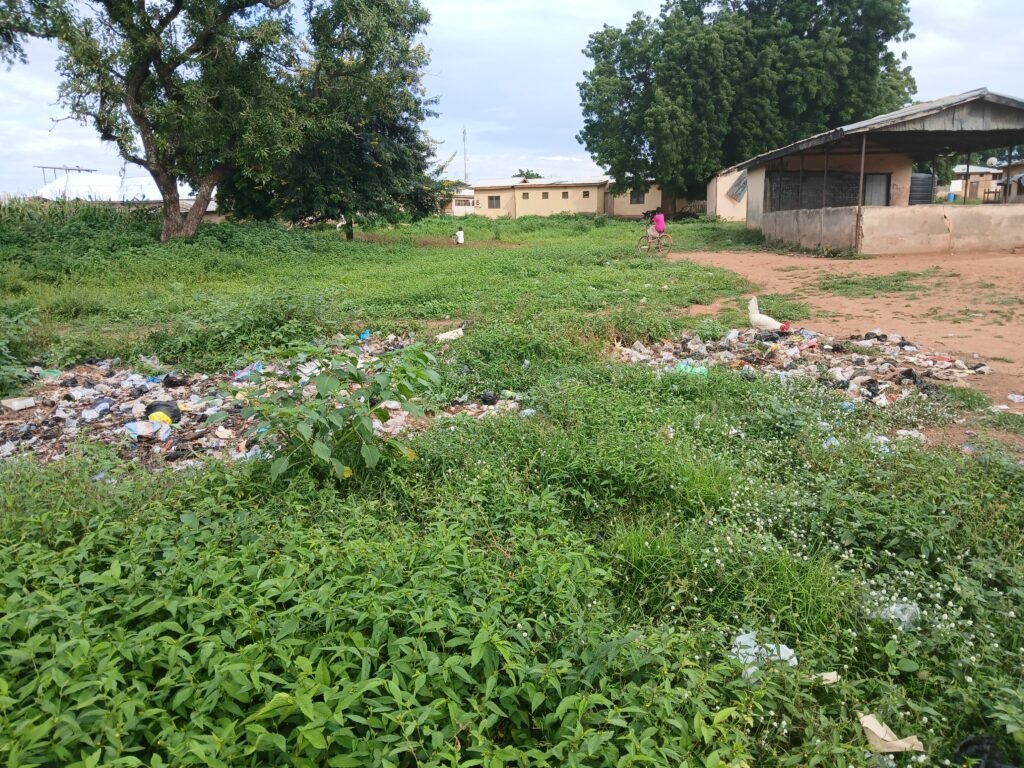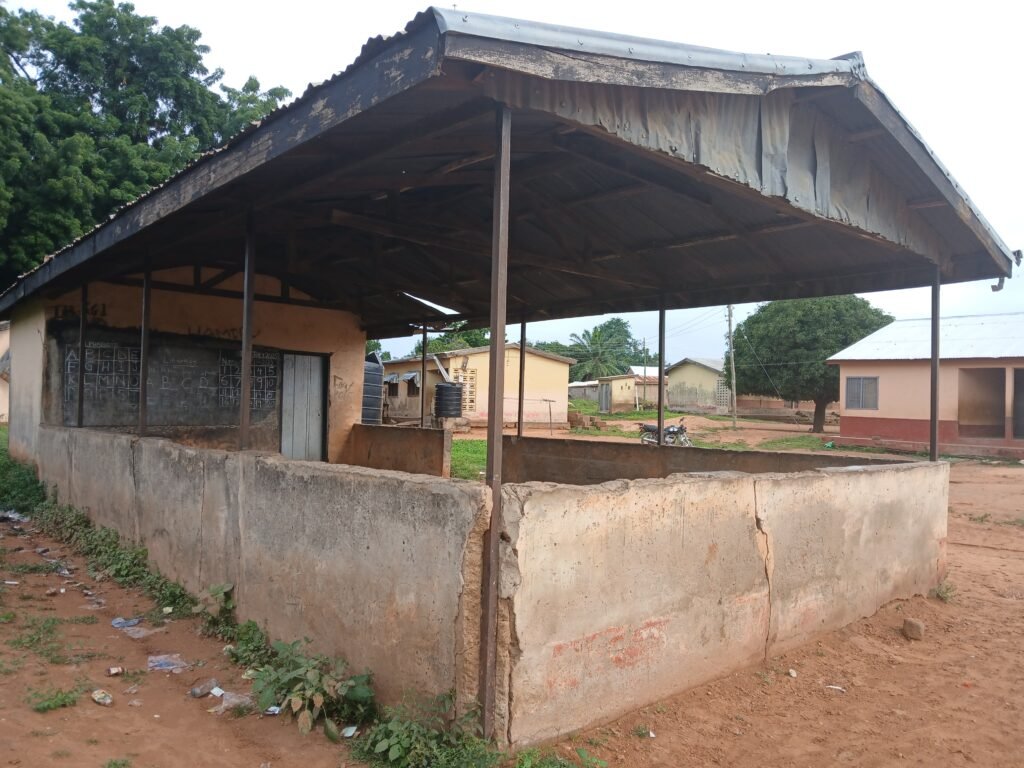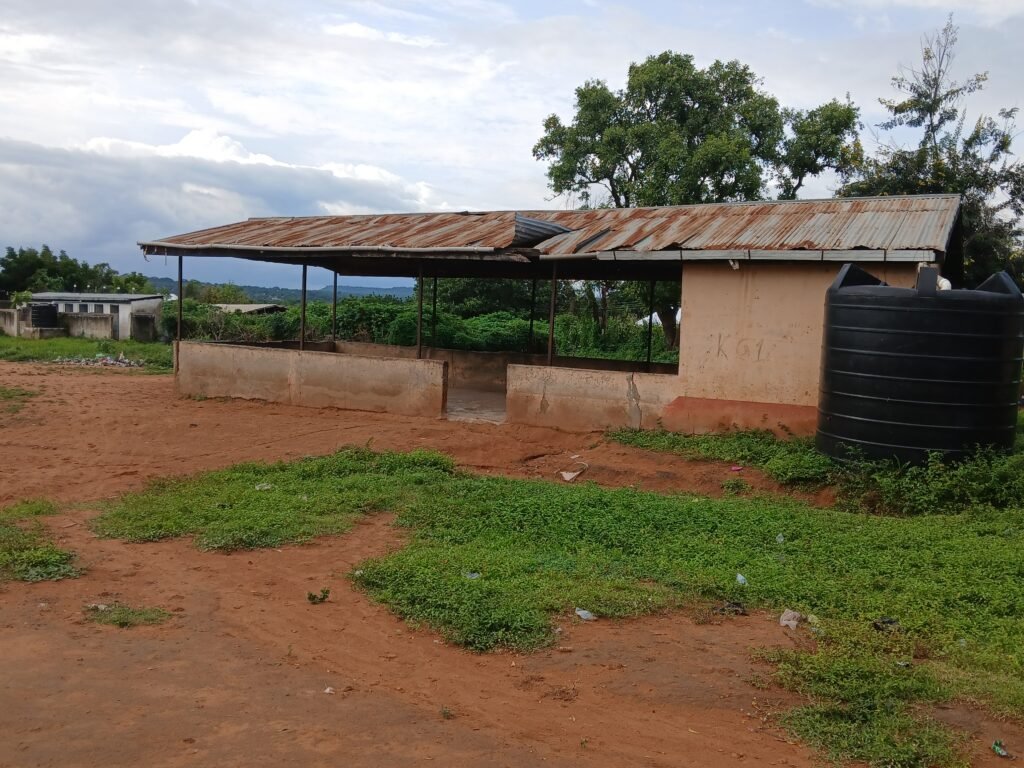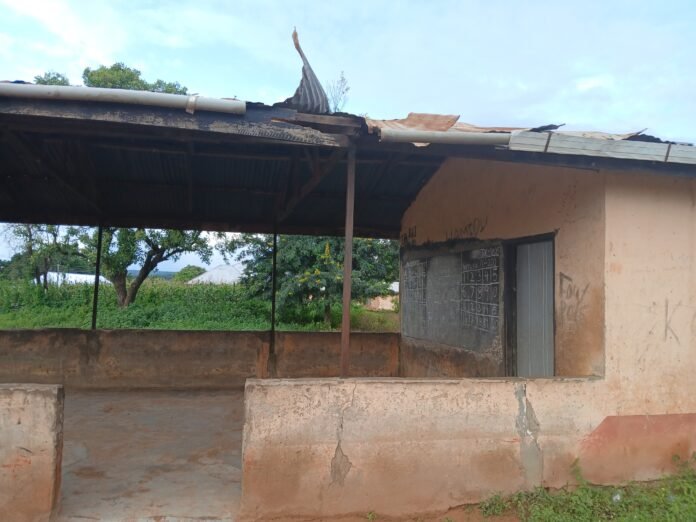Students at Falahiyat Primary School’s nursery section are being forced to learn in dangerous conditions as their makeshift classroom continues to deteriorate, raising serious safety and health concerns for the young children.
The nursery students currently receive their education in what has been described as a “dilapidated summer hut” that has become increasingly unsafe. The structure provides little protection from the elements, leaving children exposed to harsh weather conditions, particularly during the rainy season where they suffer under cold, wet conditions.
Adding to the health risks, the nursery block is situated dangerously close to a refuse dump, creating potential exposure to infections and diseases that could seriously impact the health of the vulnerable young students.

Hon. Sumaila Hafiz Kamara, Assembly Member for the DASS Electoral Area where the school is located, expressed his deep concern about the deteriorating situation during an interview with Spear FM. He described the current structure as a “death trap to the innocent little children” and emphasized the urgent need for intervention.
“Any time the rains fall, the children suffer under the cold weather,” Kamara explained, highlighting the inadequate shelter the current facility provides.
The Assembly Member revealed that despite making several appeals to various duty bearers, his efforts have so far proven unsuccessful in securing the necessary assistance for the school.

Using Spear FM platform as a last resort, Hon. Kamara issued a public appeal to key officials in the region, including Hon. Lawyer Abu Jinapor, Member of Parliament for Damongo Constituency, and Hon. Yakubu Yussif Castro, Municipal Chief Executive for West Gonja Municipality.
He also called on Hon. Adam Mutawakilu Garlus, Managing Director of Ghana Water Company, and other duty bearers in Damongo to urgently intervene and provide the necessary support to improve the learning environment for these young students.
The situation at Falahiyat Primary School highlights the broader challenges facing educational infrastructure in rural Ghana, where many schools struggle with inadequate facilities that compromise both the quality of education and student safety.

As the appeal for help continues, the nursery students remain at risk, with their education and health hanging in the balance while they await much-needed intervention from regional and municipal authorities and development partners.
(Cue Hon. Hafiz Kamara interview in English)
(Cue Hon Hafiz Kamara Interview in Gonja)




